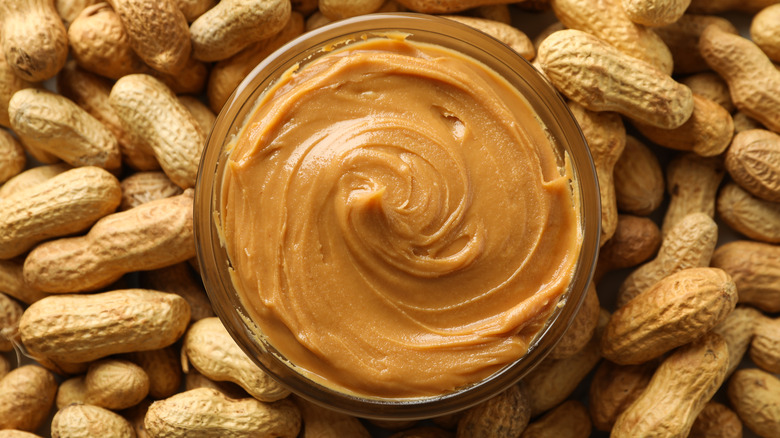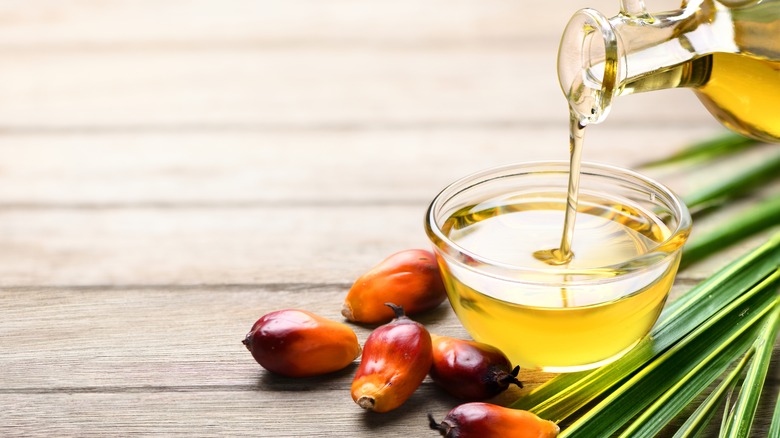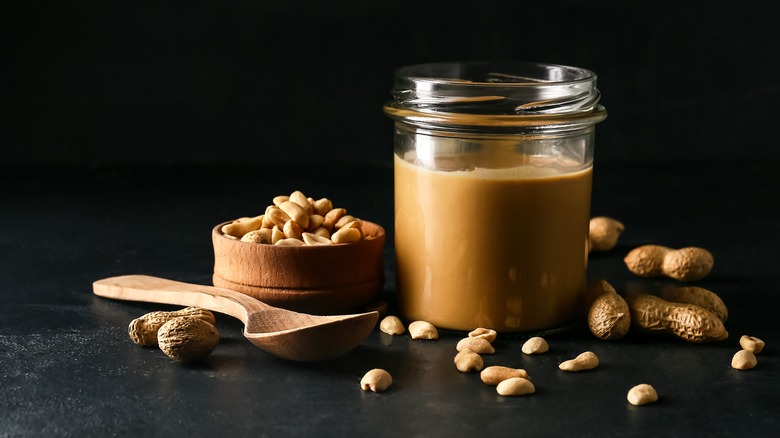The Ingredient To Check For Before Buying Generic Peanut Butter
When it comes to buying peanut butter, most of us are reading the label to look for one thing — creamy or crunchy. Whether you opt for peanut butter that is perfectly smooth or with crushed peanut pieces for extra texture is a matter of personal preference, but when it comes to your personal health and the health of the planet, there is something else you should be checking for on the label of your peanut butter jar: palm oil.
A good jar of peanut butter does not have to bear a brand name or come from a high-end grocery store, but it should contain just one ingredient: peanuts. Or two ingredients, if you like yours with some salt. In its natural state, peanut butter can be an affordable source of protein and part of a nutritious diet, with a low impact on the environment. The unnecessary inclusion of palm oil only adds saturated fat and a high carbon footprint.
How palm oil impacts your peanut butter, your body, and the planet
You may be wondering why palm oil is added to peanut butter in the first place. The answer is that palm oil acts as a stabilizer to prevent the natural separation process that causes oil to rise to the top of your peanut butter jar. This is easily (if sometimes messily) resolved by simply stirring your peanut butter before spreading it. You can also store natural peanut butter upside down for less separation. You should also put it into the refrigerator after opening to help stop separation, but also to keep it fresh as it doesn't have preservatives. Taking these small steps can make it easier to opt for a palm oil-free peanut butter.
A tablespoon of palm oil contains about a third of the daily recommended value of saturated fats. According to a 2021 study by the Journal of Clinical Lipidology, consuming high quantities of saturated fats can lead to heart health issues, like cardiovascular disease. At the same time, the production of palm oil has led to significant deforestation, resulting in the loss of plants and animals that are essential to global ecosystems; it has also led to high carbon and greenhouse gas emissions thanks not only to production methods but also to a catastrophic increase in fires across countries, such as Indonesia, that produce the oil (via the European Parliament).
Carefully choosing and safely storing your peanut butter
Besides palm oil, you may see other additives and preservatives such as sugar or vegetable oil listed on the labels of certain brands of peanut butter. Processed foods that contain added sugars and fats can contribute to the development of health issues ranging from diabetes to heart disease (per the School of Public Health at Harvard). The simplest way to choose a food product that is good for your body and the planet is often to opt for those with the shortest ingredient lists — i.e. only peanuts. If you are allergic to peanuts or interested in trying peanut butter alternatives, you can also apply this practice to other nut butters and seed spreads.
To find your new favorite jarred peanut butter, do some trial and error and test out various producers until you find one that suits your needs. Peanut butter does expire about three or four months after the jar has been opened — or sooner if not stored properly — so be sure to keep yours in the refrigerator.



